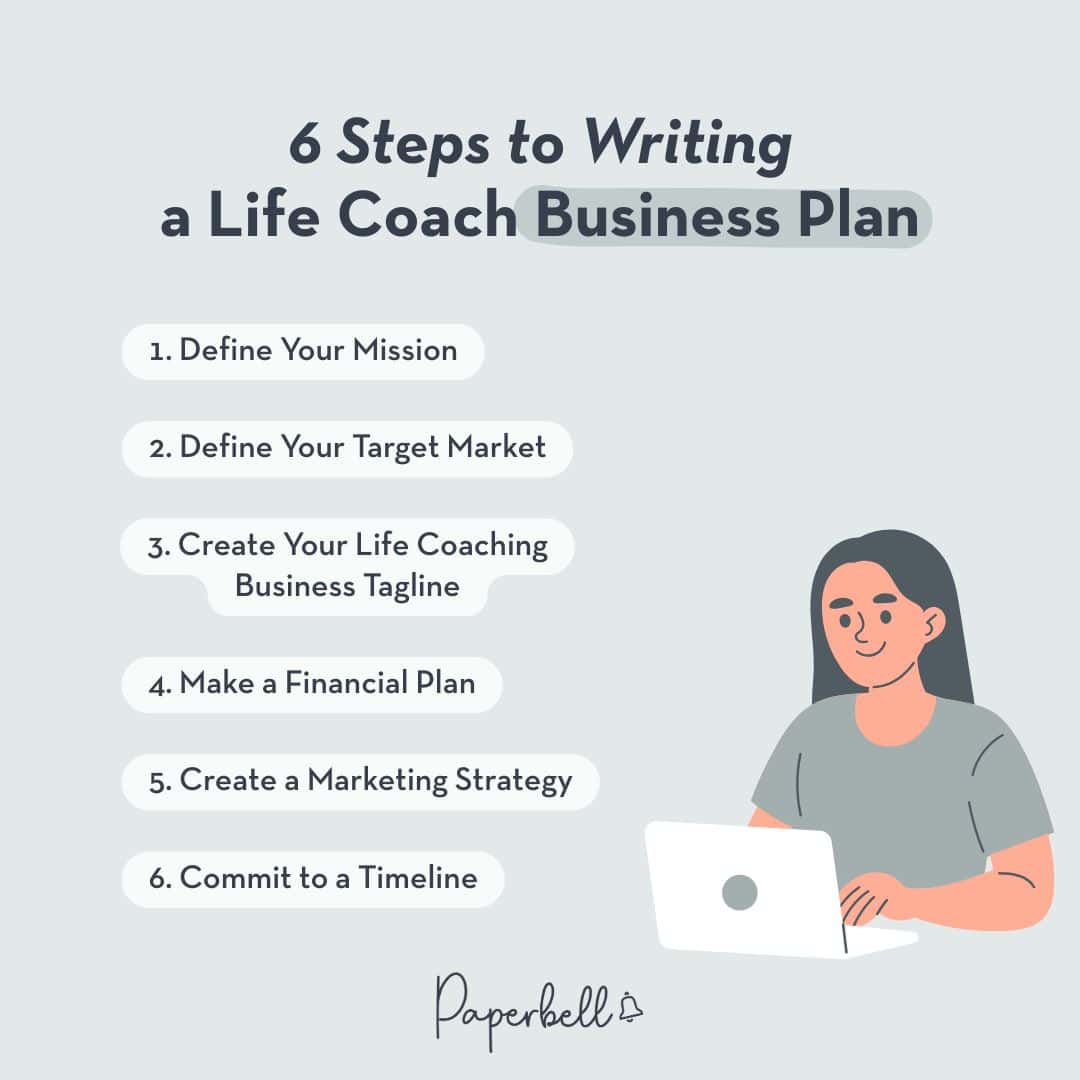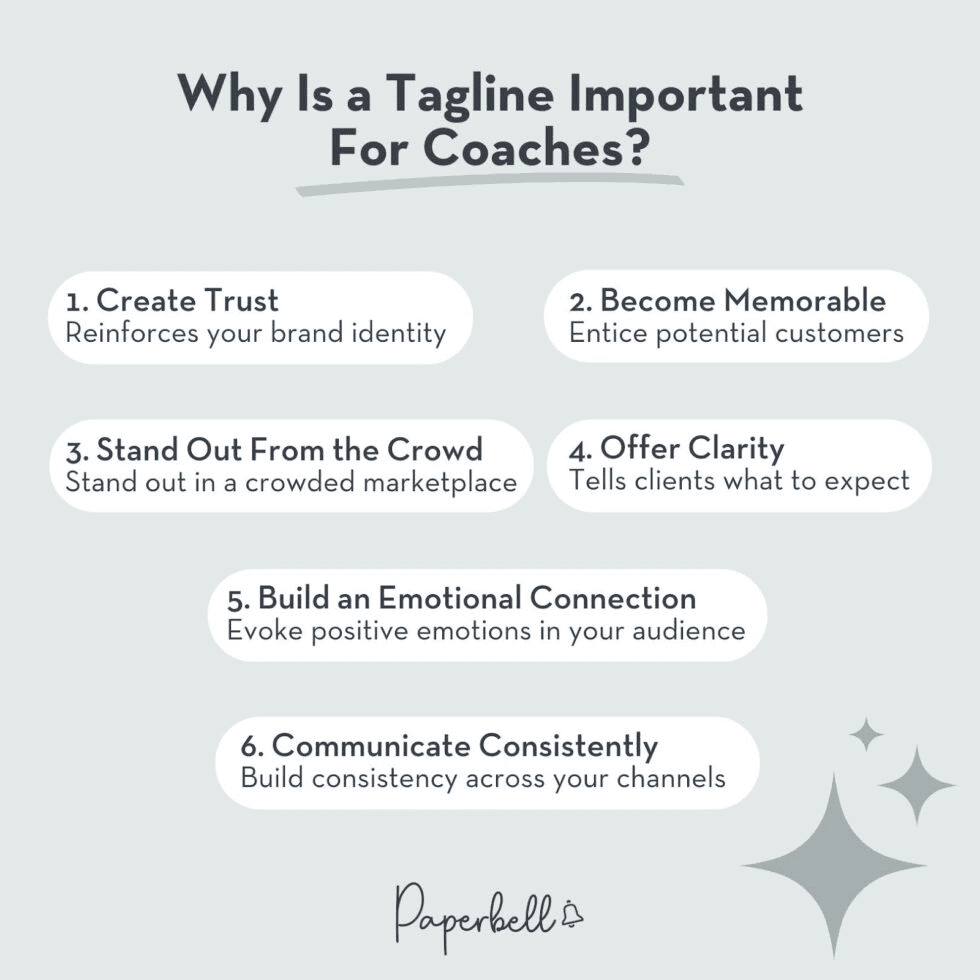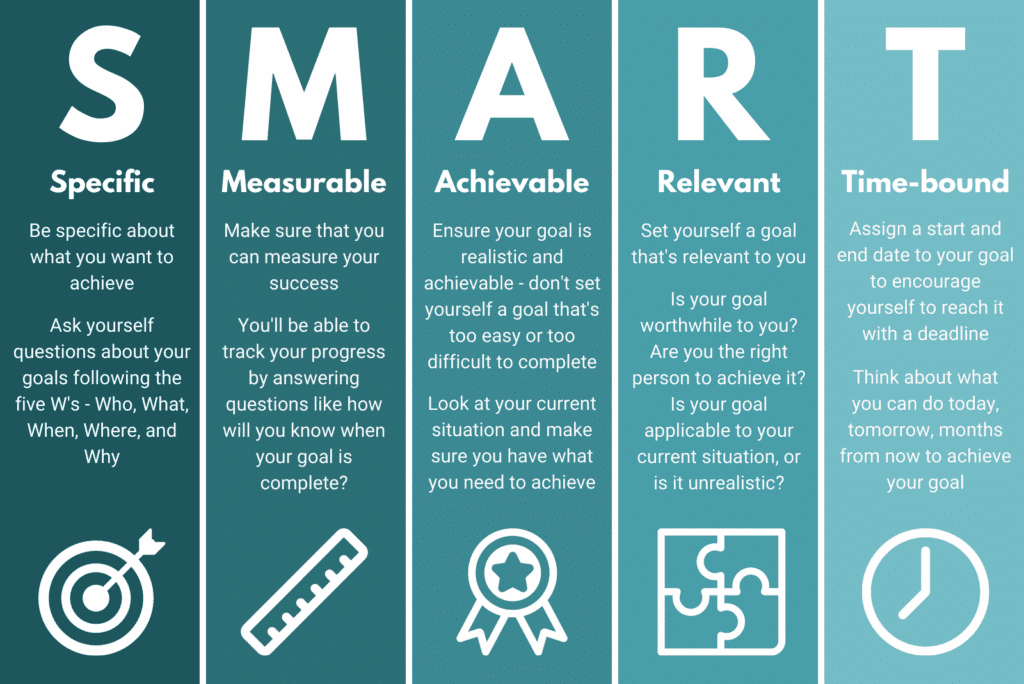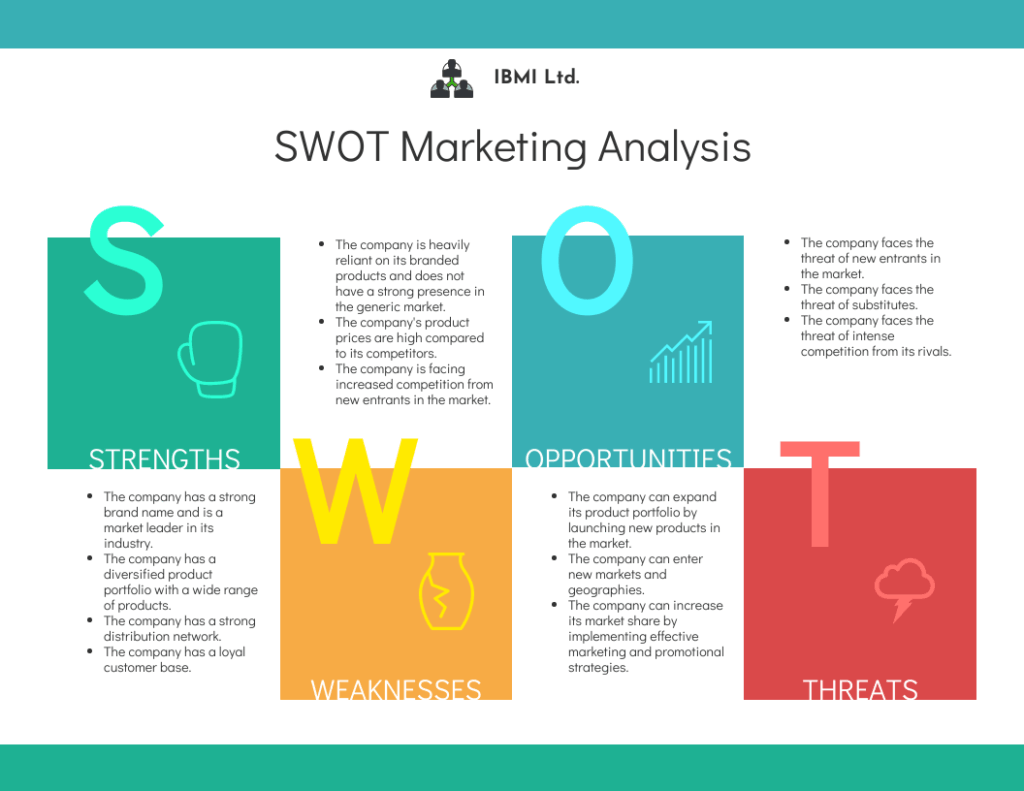We get it. You want to help people. You have been through the wringer, figured out how to master certain things, and want to share what you know with others.
You want to change lives, but wait: You need to make money too!
Only about 20% of coaches succeed in making this a full-time, sustainable business. And they do because they are prepared, have a clear plan, and can execute a well-thought-out strategy.
If you want to make this a business more than a side hustle or Mother Teresa-style mission, you must know how to write a life coach business plan. Let’s go through the essential steps of how it’s done, including:
- Free life coach business plan template
- Why you need a life coaching business plan
- 6 steps to writing a life coach business plan
Why You Need a Life Coaching Business Plan
Before jumping into action, let’s consider why creating a coaching business plan is essential.
You can’t build a business and increase revenue unless you have a clear vision of where to take it and an actionable plan to get there. Using an AI business plan creator can make this process easier by helping you structure your ideas and turn them into a clear, professional plan.
When you’re planning a road trip, you first pick a destination. Then, you define the route to get there and research the attractions you might want to see during your trip. And, of course, you factor in the expenses.
Your life coaching business plan should be treated the same way.
You need a solid plan to navigate your business because it will:
- Help you to know your next steps at all times
- Keep your work focused and efficient
- Guide your strategic decision-making to achieve your business goals
- Help you budget better and save money
- Make it easier to foresee potential business challenges so you can prepare for them
- Make it possible for you to grow your business
- Keep you accountable as a business owner
So, let’s explore what it takes to pin down a business plan you can rely on.Pro tip: Once you have a coaching business plan in place, you’ll want to keep your business costs down and your admin time low to bring it to life. Try Paperbell for free to run your entire coaching business from a single platform.
6 Steps to Writing a Life Coach Business Plan

1. Define Your Mission
To create a life coaching mission statement for yourself, think about:
- What type of life coach you’d like to be
- Who you’re serving
- How you want to help them
- Why you’re doing it
This is also known as your 30-second elevator pitch. Here’s an example of a life coaching mission statement:
“I’m a career coach and I help mid-career tech professionals advance in their fields. I provide strategic career planning for my clients to navigate the complexities of the tech sector, capitalize on their strengths, and unlock new opportunities. My mission is to bridge the gap between ambition and achievement, guiding individuals towards fulfilling tech careers.”
2. Define Your Target Market
From your mission statement, you’ll need to define your target market or coaching niche.
If you don’t know who your target market is, you’ll have difficulty finding clients. That’s because you’ll have no idea who you’re speaking to.
And when you don’t know who you’re speaking to, your messaging and copywriting will target no one at all.
To find out who your ideal clients are for your coaching business, answer the following questions:
- Who are they?
- What are their needs?
- Where do they hang out?
- What content are they consuming?
- How old are they?
- How do they spend their money?
- What are their pain points?
The best way to find the answers to these questions is to talk to people who may be your ideal customers. Get out there and speak to the people you think could benefit from your service.
Where will you find these ideal customers? Get referrals from your network or look for people you can briefly interview in relevant online communities. You may offer them a small incentive if you want to conduct an in-person or longer interview with them.
Find out what they’re looking for in a life coach:
- What are their main challenges?
- How many coaching sessions could they commit to?
- Do they prefer them in person or online?
Gaining insights into your potential client’s needs before marketing your business will help you build a product that people want. In business lingo, it’s called a product-market fit (i.e., building a product that satisfies market demand). You need this to build a successful life coach business for the long term.
If you want to increase your chances of success when starting, build something people actually want, not what you think they want. Create your coaching packages using evidence from your customer interviews. That way, you can make sure your services answer real-world needs.
You’ll also need to decide what type of coaching services you’ll offer, or if you’ll expand beyond just coaching. According to the International Coaching Federation’s (ICF) 2025 report:
- 60% of coaches provide training
- 57% of coaches offer consulting
- 55% of coaches offer facilitation
- 49% of coaches deliver mentoring
What you offer should depend on:
- Your specific set of skills, and
- What your ideal clients’ challenges will require you to solve
3. Create Your Life Coaching Business Tagline
Once you know who your clients are and what they want from your services, it’s time to get creative. Start thinking about the messaging you want to put out there about your coaching business.
Your coaching tagline tells people in a short sentence who you are and what you do. It’s an opportunity to tell the world why they should choose you.

To create an effective tagline:
- Choose clarity over creativity. This tagline must be clear in telling the client what you do.
- Position yourself as an expert, and don’t be shy to be confident in your gifts.
- Test your tagline and ask for feedback from others. This is a part of your market research.
You don’t have to get your tagline perfect from the start. Instead, you can always reiterate it as your business and experience grow.
A strong tagline will help you position yourself in the market and be an invaluable tool for your marketing efforts.
Here are some ideas for taglines that work well for life coaching programs:
- Getting you unstuck
- Master your goals
- Be unapologetically you
- Small steps reap huge rewards
- Get more out of life
- Unlock your potential
4. Make a Financial Plan
To make your coaching business profitable, you’ll need a financial plan and a business model.
For example:
- How much will you charge clients for a session?
- Will they need to book you for a set term or buy your coaching packages?
- How many clients will you need to work with weekly to earn your ideal income?
Calculate how much time you can spend working with clients and on your business, and then work backward from there. These decisions will help you create a more predictable income and financially sustain your business.
You’ll also need to take other factors into account, such as:
- The market price for your coaching niche
- Your level of experience
- Whether or not you’re certified as a coach
For instance, the average cost of an hour-long coaching session is $272. So if you were thinking of charging $500 right off the bat with little to no experience, think again.

You’ll also need to think beyond covering your basic business expenses (including the salary you pay yourself) and paying your taxes. For instance, consider how much you’ll invest in growing your business.
You can use budget management software to help you track and plan your finances. Having a solid plan for handling and reinvesting the money you make is an essential part of your business plan.
5. Create a Marketing Strategy
Coaching businesses are highly competitive. The ICF’s 2025 report cited earlier states an increase of 15% in the number of coaches since 2023.
However, the right marketing strategies can help you rise above the noise.
To know what you’re working with and gain a competitive advantage, you need to know what else is happening in the market.
Competitive analysis is not reserved for consumer products and tech-based companies. In an industry as massive and lucrative as coaching, competition is everywhere. Often, life coaches compete for the same clients.
To define who you’re competing with, consider these questions:
- Who are your main competitors?
- What are they doing that is working?
- Where are they advertising?
- How are they attracting new clients?
- What sets them apart from the rest?
- What techniques are they using to close the sale?
And most importantly, how will you do it better?
Think about your unique selling point and ways you can reach clients, for example, through:
- Creating free resources as lead magnets for your email marketing campaigns
- Offering a free webinar, workshop, or session to get leads and showcase your expertise
- Using search engine optimization (SEO) and a weekly blog post to get the attention of new clients
- Making informative and engaging social media content to reach your audience
- Creating online courses to attract one-on-one coaching clients
- Speaking at in-person or online events and getting media coverage
However you decide to get your message in front of potential customers, you need to set SMART goals to execute your plan. That means your business goals are specific, measurable, achievable, realistic/relevant, and time-bound.

For example, you may have the goal of building an email list so you can start sharing weekly advice. You can’t conjure a list from thin air, so you will need to create an opt-in strategy for getting people to sign up for your list.
So your SMART goal could look like this:
“Get the first 100 people to sign up for my email list through Facebook ads in the next month.”
The key to a successful marketing plan is to break it down into digestible action steps. Small tasks carried out step-by-step are much more achievable than one big, lofty goal.
6. Commit to a Timeline
Now that your business structure and long-term goals are clear, it’s time to define your next major milestones. You can use your business plan as your north star and set goals for every:
- Month
- Quarter
- Year
- 3-year period
- 5-year period
- 10-year period
Though it’s best to stay consistent with the fundamentals of your business, you can revise your business plan from time to time. As you keep growing it over the years, you’ll be clearer on how you can capture its essence and market it effectively.
Follow This Business Plan Template to Write Your Life Coach Business Plan
Lastly, we want to make it as easy as possible for you to create a simple coaching business plan and move on to growing your own coaching business.
Here’s a handy step-by-step life coach business plan example that you can follow to get started.
1. Business Name and Tagline
Make your business name shine and tell people concisely who you are and what you will do for them.
Example:
Business Name: Thrive Through Transition Coaching
Tagline: Empowering women to navigate menopause with confidence and vitality
2. Mission Statement
Your mission may change occasionally, but it should be a constant reminder of why you get up every morning and make life coaching your business.
Example:
Thrive Through Transition Coaching empowers women navigating menopause to reclaim their vitality, confidence, and well-being through personalized coaching and evidence-based strategies. We address the physical, emotional, and lifestyle challenges of this transition with compassionate support, helping clients develop sustainable habits that transform menopause from a struggle into an opportunity for renewal and growth.
3. Executive Summary
Write this last. Your executive summary should summarize all of the following sections in a paragraph-by-paragraph format. If this feels too challenging, you can consider using an AI text summarizer for assistance. It will make the process easier for you by automatically condensing your entire business plan into a digestible and concise summary. This benefits both you and those you may share your plan with.
4. Competitive Analysis
List up to five of your biggest competitors:
- What are their strengths and weaknesses?
- How do you plan to compete?
Here’s a great how-to guide on doing a competitive analysis.
5. SWOT Analysis
Your competition has holes, and you likely will, too. SWOT Analysis stands for Strengths, Weaknesses, Opportunities, and Threats.

No one can be great at everything, but we all have positive and negative traits. Understanding those and working with them is a big part of running a successful life coaching business.
Tackle this head-on, and you will save yourself a lot of headaches and financial loss. Learn how to do your own SWOT analysis here.
6. Target Market
If you don’t know who your customers are, you can’t find them.
Be as detailed as possible and paint a clear picture of your client so you can find the ones that need you.
Example:
- Women aged 45-55 experiencing perimenopause or menopause who are struggling with symptoms like hot flashes, sleep disruption, weight gain, or mood changes that are impacting their daily life and overall well-being.
- Professional women and working mothers who feel overwhelmed by managing menopause symptoms while balancing career demands and family responsibilities, and are seeking practical strategies to maintain their performance and energy levels.
- Health-conscious women who prefer holistic, natural approaches to managing their menopause journey and want personalized guidance rather than relying solely on medication or generic advice.
7. Financial Plan
Create a projection of your annual income. You’ll need to:
- Define the financial goals you would like to reach
- Create a budget
- Consider working with a bookkeeper to save on your taxes and grow your savings
Example:
- Financial Goals: Generate $90,000 in annual revenue within the first year, growing to $120,000 by year two.
- Revenue: 15 clients per month at $500 per month (ongoing coaching package) = $7,500/month or $90,000 annually, plus 2 group workshops at $200/person with 12 participants each = $4,800, bringing total projected revenue to $94,800 in year one.
- Expenses: Business insurance ($800), website and scheduling software ($500), marketing and advertising ($4,800), professional development and certifications ($2,000), office supplies and materials ($600), accounting services ($1,500), miscellaneous ($600). Total annual expenses: $10,800.
- Net Income: $84,000 in year one.
8. Marketing Plan
Your marketing plan should specify:
- How are you going to launch your business?
- Where will you find your clients?
- What collateral will you need to do so?
This part of your plan is a working document that will change as you learn and grow.
The Hardest Part is Getting Started
Hopefully, this guide has clarified how you can start crafting your master plan for your life coaching business. If you want to dig into more nifty resources, we recommend our free template pack for coaches.
And if you’re ready to bring your business plan to life without the admin overload, Paperbell is here for the job. It’s an all-in-one client management tool that handles your website, scheduling, payments, contracts, and more. Try it for free today to get your own gorgeous website with all your business tools built right in.
FAQs About Life Coach Business Plan
How do I start a life coaching business?
To start a life coaching business, begin by defining your niche, obtaining relevant training or certification, creating a business plan, setting up a professional website, and marketing your services to attract clients.
Is life coaching profitable?
Yes, life coaching can be profitable. In this fast-growing industry, your earning potential depends on your client profile, your level of expertise, and how well you market yourself.
How much does it cost to start a life coaching business?
It’s possible to set up your coaching business while keeping your expenses low by taking a free certification program first, setting up a home office and running your sessions online, creating your own marketing materials, and using low-cost marketing strategies.
Do I need an LLC for a life coaching business?
No, you don’t need an LLC to start a coaching business. However, it can be helpful to mitigate personal risk. It’s also a good idea to form an LLC if you intend to hire employees.
What is the most lucrative life coaching niche?
Business coaching and executive coaching tend to be the most lucrative coaching niches. This is because your coaching can have a significant positive impact on your clients’ bottom line, which allows you to charge higher fees.

Editor’s Note: This post was originally published in February 2023 and has since been updated for accuracy.









